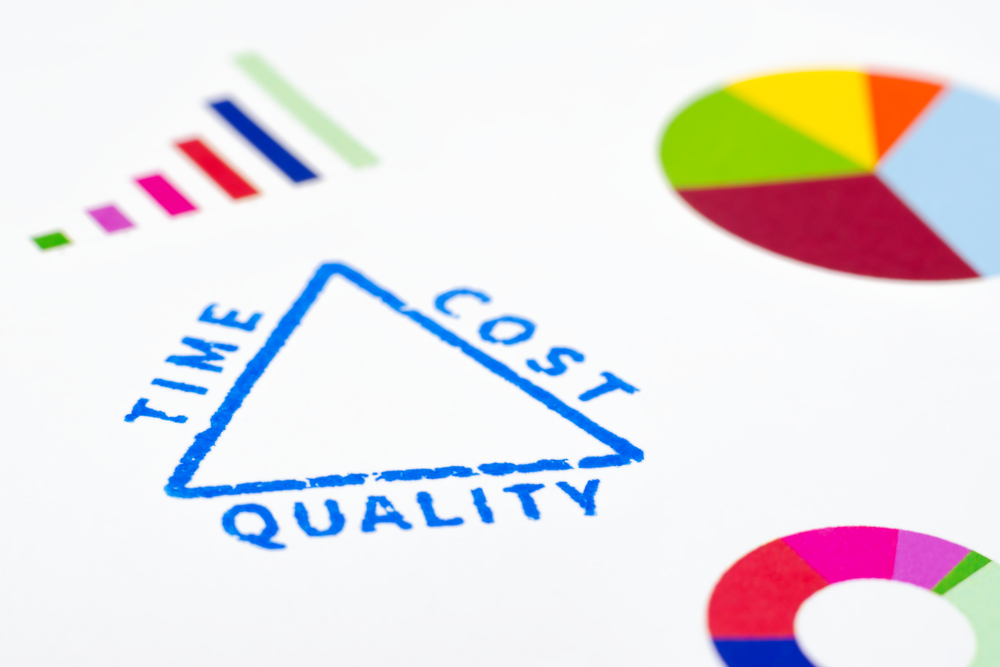
Have you ever worked on home improvement? If you are like me, you will probably underestimate the number of supplies needed, the time it takes to complete the work, and end up with a follow-on project. After several trips to the do-it-yourself big box store and spending twice the amount of money expected, you wonder if there is a better way.
Of course, the answer is “yes.” Project management is a set of skills that help balance expectations of scope, schedule, and budget. Chemical engineers are ideal candidates for managing projects because our educational background and training cover diverse subject matter. We have learned that all elements of an operating system must be in sync – just as all components of a project must be in sync to produce the expected output.
What is a project?
Let’s start with the basics – what is a project? The most common definition (Project Management Institute, 2017) is a temporary endeavor that creates a unique product, service, or output, typically utilizing a temporary team. Projects are considered events that have specific start and end dates and use a team of resources assembled specifically to accomplish a stated goal. In contrast, day-to-day operations are not projects, as they are ongoing (not temporary) and produce a standard output (versus a unique product or service).
Project success measures
Projects are judged a success if they deliver the expected scope of work on time, within budget, and at the desired level of quality. Sometimes these elements are called the “triple constraint”or “iron triangle.”

Almost immediately you will notice that proper planning is crucial to project success. If the scope of work is ill-defined, it is a challenge to guess how long it will take or how much it will cost. That is usually the problem with my home improvement projects. I have not fully considered the full scope of work, so I underestimate the time to complete the project and, likewise, underestimate the cost of the project.
Chemical engineers manage projects of widely varying scope and scale. Replacing or upgrading a pump in a plant is a small project with, perhaps, a cost less than $100k and a schedule of 90 days. Other projects are major, spanning millions of dollars and lengthy timeframes, such as the development and design of a new process using a unique catalyst. The work of both traditional process engineers and R&D involve projects to generate unique results.
Project teams
While a home improvement project might involve a team of one, most engineering projects utilize multi-disciplinary teams. Because chemical engineers already interact with broad cross-functional groups of people, project management is a natural fit. Projects often require several engineering disciplines for design, construction, and startup of new processes. Chemical engineers and project managers also work closely with scientists, chemists, and physicists on a regular basis and need to understand technical elements of projects as well as the scope, schedule, and budget. Finally, chemical engineers are well-suited to working with project accountants and finance teams since we are trained to see “the big picture.”
How do you become a project manager?
Chemical engineers often work as project managers, even early in their careers. Designing and installing replacement or upgraded equipment is a project by definition. One of my first assignments in an R&D group was a project to analyze plant and experimental data to identify yield loss. This work involved a temporary team (including plant and lab technicians, other engineers, and management) and a tight schedule. Working on such a project helped me develop additional skills, such as communication, leadership, and coordination, which are important for managing projects. Chemical engineering education and training cover varied technical skills so that learning broad-based project management and people skills is an easy extension of basic skills.
In addition to your training as a chemical engineer, many project managers earn certification as project management professionals (PMP) through the Project Management Institute (PMI). If you are working inside a corporation, learning project management skills through experience (or via an AIChE course) is often sufficient. However, if you are working for an EPC contractor or as an independent consultant, the additional certification may be a valuable recognition of your training and skills.
Chemical engineers as project managers
Chemical engineers learn to balance reaction kinetics, fluid flow, and heat transfer to process various materials into valuable consumer products and commodities. Project managers balance scope, schedule, and budget to create unique outputs and products. Whether you work full-time or part-time on projects, chemical engineers can benefit from planning and organizing work to consider the scope of work, schedules, budgets as well as cross-functional team collaboration, coordination, and communication.
In our next article, we will address quality management, which is another great career path for chemical engineers.
References
Project Management Institute. (2017). A Guide to the Project Management Body of Knowledge (PMBOK Guide) (Sixth ed.). Newton, PA: Project Management Institute, Inc.
If you are interested in learning more about professional development, networking, and interviewing, be sure to check AIChE Career DiscoveryTM, which is part of the Institute for Learning & Innovation (ILI). See upcoming instances of the Career Discovery Workshop on AIChE Academy and read more about the process here.
Learn more about professional development


